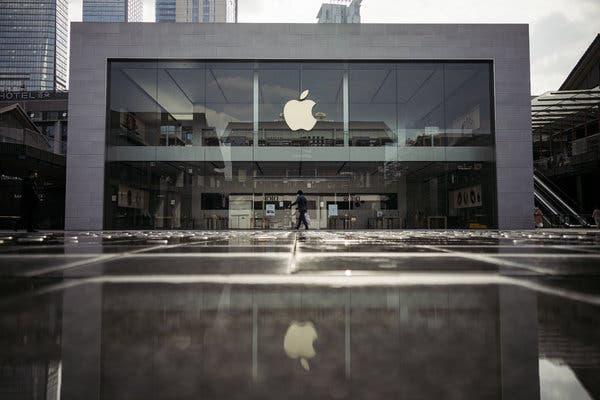The global tech giant, Apple Inc., recently announced that its financial forecast has been significantly impacted by the ongoing coronavirus outbreak. The outbreak, which originated in Wuhan, China, has not only disrupted global supply chains but also led to a decline in consumer demand and retail operations in one of Apple’s most crucial markets.
The iPhone maker, which is highly dependent on Chinese factories and Chinese consumers, said in a statement that its supply of smartphones would be hampered because production was ramping up more slowly than expected as China reopened its factories. Apple also said that demand for its devices in China had been hurt by the outbreak; it closed all 42 of its stores in the country last month and most have yet to reopen.
“Work is starting to resume around the country, but we are experiencing a slower return to normal conditions than we had anticipated,” said Apple, one of the world’s most valuable public companies.
Work is starting to resume around the country, but we are experiencing a slower return to normal conditions than we had anticipated,
Supply Chain Disruptions:
Apple, like many other multinational corporations, heavily relies on Chinese manufacturers for its supply chain. The widespread shutdowns and restrictions imposed to curb the virus’s spread have disrupted the production and shipment of key components for Apple’s products. As a result, the company faces challenges in meeting its production targets and satisfying consumer demand.
Decreased Consumer Demand:
With the virus spreading to various countries, consumer confidence has taken a hit. Apple, being a global brand, is witnessing a decline in demand for its products as potential buyers hesitate due to economic uncertainties and health concerns. The decrease in foot traffic and sales at Apple’s retail stores, coupled with a slowdown in product demand, has contributed to the financial strain.
Retail Operations in China:
China, where the outbreak originated, is a critical market for Apple. The company temporarily closed all its stores in mainland China as a precautionary measure. Although some stores have since reopened, the impact on sales and customer engagement during the closure period has affected Apple’s financial performance.
Revenue Guidance Adjustment:
In response to the challenges posed by the coronavirus outbreak, Apple announced a revision to its revenue guidance for the upcoming quarter. The company stated that it does not expect to meet the revenue target it set for the quarter due to the aforementioned factors. This adjustment reflects the immediate and tangible impact of the virus on Apple’s financial performance.
Market Reaction:
The announcement of Apple’s revised revenue guidance has not gone unnoticed in the financial markets. The company’s stock experienced a dip in response to the news, as investors reevaluate their expectations in light of the ongoing challenges posed by the coronavirus outbreak. The broader tech industry is also monitoring these developments closely, considering Apple’s influential position in the market.
Mitigation Efforts:
Apple is not alone in facing the consequences of the coronavirus outbreak, as several industries grapple with its multifaceted impact. The company is actively working to mitigate the challenges, including diversifying its supply chain and exploring alternative manufacturing options. However, the evolving nature of the virus and its impact on global markets pose ongoing uncertainties for Apple and other corporations.
Looking Ahead:
As the situation surrounding the coronavirus outbreak continues to unfold, Apple remains committed to adapting its strategies and operations to navigate these challenging times. The company’s ability to weather this storm will not only depend on its proactive response but also on the global efforts to contain and mitigate the impact of the virus.
The financial repercussions of the coronavirus outbreak on Apple serve as a stark reminder of the interconnectedness of the global economy and the vulnerabilities faced by even the most influential companies. As the world mobilizes to address the challenges posed by the virus, industries, including technology, will continue to assess and adapt their strategies to navigate these unprecedented circumstances.












